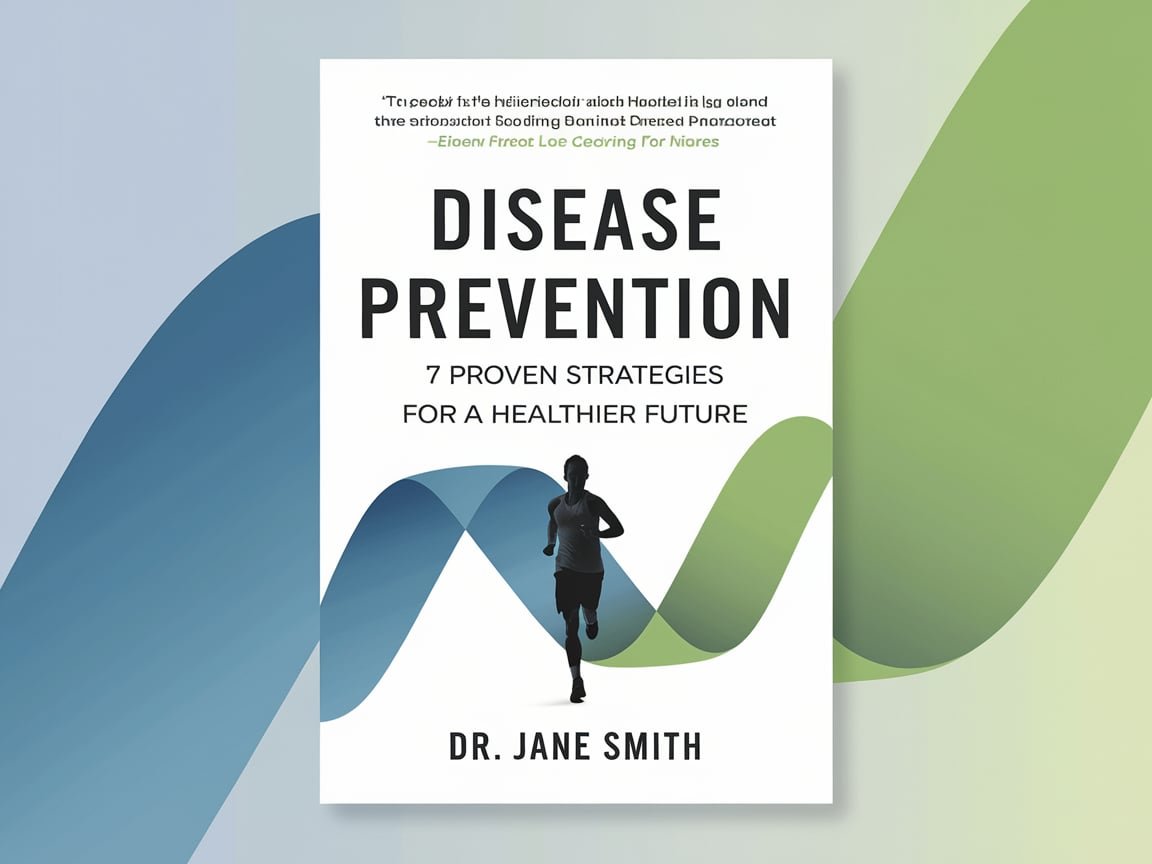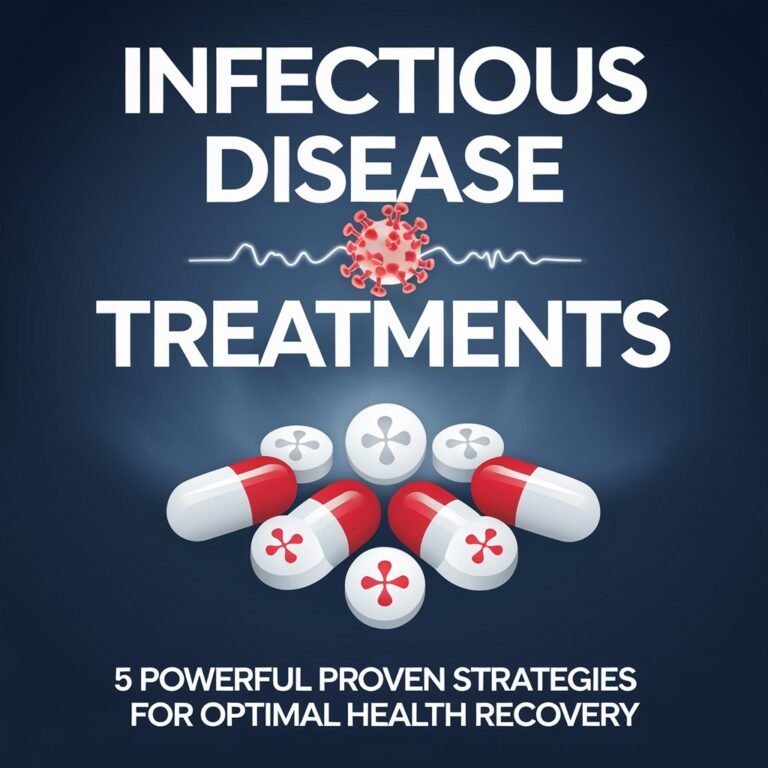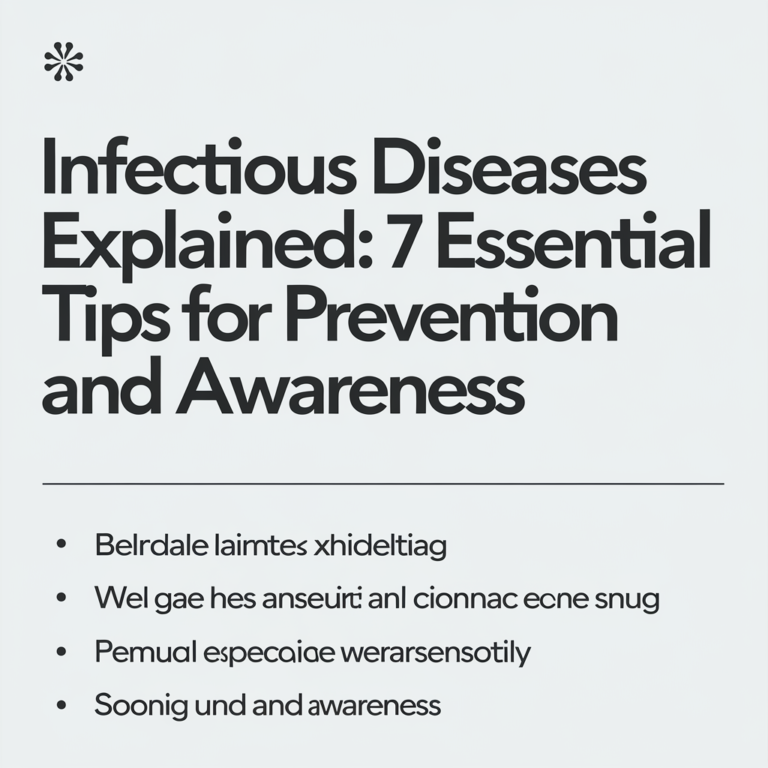
"Discover 7 proven strategies for effective disease prevention and enhance your health today!"
Disease prevention is a critical component of public health that aims to reduce the incidence and impact of diseases. By adopting proactive measures and understanding risk factors, individuals and communities can significantly enhance their well-being. This article explores various strategies for disease prevention, highlighting their importance in fostering a healthier society.
Understanding Disease Prevention
Disease prevention encompasses a range of activities designed to reduce the risk of disease and its complications. It can be categorized into three levels:
- Primary Prevention: This involves measures taken to prevent the onset of disease. Examples include vaccinations, healthy lifestyle choices, and health education.
- Secondary Prevention: This focuses on early detection and intervention to halt disease progression. Screenings and regular check-ups fall under this category.
- Tertiary Prevention: This aims to manage and mitigate the impact of established diseases. Rehabilitation programs and chronic disease management strategies are examples.
The Importance of Disease Prevention
Investing in disease prevention offers numerous benefits:
- Reduced Healthcare Costs: Preventive measures can significantly decrease healthcare expenditures by avoiding expensive treatments for chronic diseases.
- Improved Quality of Life: Healthy individuals can engage more fully in their communities and lead productive lives.
- Enhanced Public Health: Widespread preventive practices contribute to overall population health, reducing the burden on healthcare systems.
Key Strategies for Disease Prevention
1. Vaccination
Vaccines are among the most effective tools for disease prevention. They protect individuals and communities from infectious diseases by stimulating the immune system to recognize and combat pathogens.
- Routine Immunizations: Vaccination schedules are essential for children and adults. Vaccines for diseases such as measles, mumps, rubella (MMR), and influenza are critical in preventing outbreaks.
- COVID-19 Vaccines: The development and distribution of COVID-19 vaccines represent a monumental achievement in public health, showcasing the importance of immunization in controlling infectious diseases.
2. Healthy Lifestyle Choices
Adopting a healthy lifestyle is a cornerstone of disease prevention. Key components include:
- Balanced Diet: Consuming a variety of fruits, vegetables, whole grains, lean proteins, and healthy fats supports overall health. A nutritious diet can lower the risk of chronic diseases such as heart disease, diabetes, and cancer.
- Regular Exercise: Engaging in physical activity for at least 150 minutes per week can enhance cardiovascular health, strengthen muscles, and improve mental well-being.
- Adequate Sleep: Prioritizing sleep is vital for immune function and overall health. Adults should aim for 7-9 hours of quality sleep each night.
- Stress Management: Chronic stress can negatively impact health. Practices such as mindfulness, meditation, and yoga can help manage stress levels.
3. Regular Health Screenings
Early detection of diseases can lead to better outcomes. Regular health screenings are essential for identifying potential health issues before they become serious.
- Blood Pressure and Cholesterol Checks: Monitoring blood pressure and cholesterol levels can help prevent heart disease and stroke.
- Cancer Screenings: Regular screenings, such as mammograms for breast cancer, Pap smears for cervical cancer, and colonoscopies for colorectal cancer, can detect cancer early when treatment is most effective.
- Diabetes Screening: Regular glucose tests can identify prediabetes and diabetes, allowing for timely intervention.
4. Mental Health Awareness
Mental health is a critical aspect of overall health. Promoting mental well-being can prevent various psychological disorders and improve quality of life.
- Education and Resources: Providing access to mental health resources, support groups, and educational materials can help individuals manage stress and mental health challenges.
- Workplace Initiatives: Employers can create supportive environments that prioritize mental health, including employee assistance programs (EAPs) and wellness initiatives.
5. Hygiene Practices
Practicing good hygiene is essential for preventing the spread of infectious diseases.
- Handwashing: Regular handwashing with soap and water, or using hand sanitizer, is a simple yet effective way to prevent infections.
- Food Safety: Proper food handling and cooking techniques can reduce the risk of foodborne illnesses.
- Vaccination and Health Protocols: Following vaccination guidelines and public health recommendations during outbreaks can protect individuals and communities.
6. Environmental Factors
Creating a healthy environment can play a significant role in disease prevention.
- Pollution Control: Reducing air and water pollution can decrease the incidence of respiratory diseases and other health problems.
- Access to Green Spaces: Promoting access to parks and recreational areas encourages physical activity and mental well-being.
- Safe Housing: Ensuring access to safe, affordable housing is crucial for overall health and can reduce the risk of various diseases.
Community Engagement
Community involvement is vital for effective disease prevention. Health education programs, community health fairs, and support groups can raise awareness and promote healthy behaviors.
- Partnerships: Collaborating with local organizations, schools, and businesses can amplify health messages and resources.
- Advocacy: Engaging in advocacy for public health policies, such as improved access to healthcare and nutrition programs, can drive systemic change.
Conclusion
Disease prevention is essential for fostering a healthier society. By focusing on vaccination, healthy lifestyle choices, regular screenings, mental health awareness, hygiene practices, and community engagement, individuals and communities can significantly reduce the burden of disease. Investing in disease prevention not only enhances personal health but also contributes to the overall well-being of society. As we look to the future, prioritizing disease prevention will be crucial in building a healthier, more resilient world.






